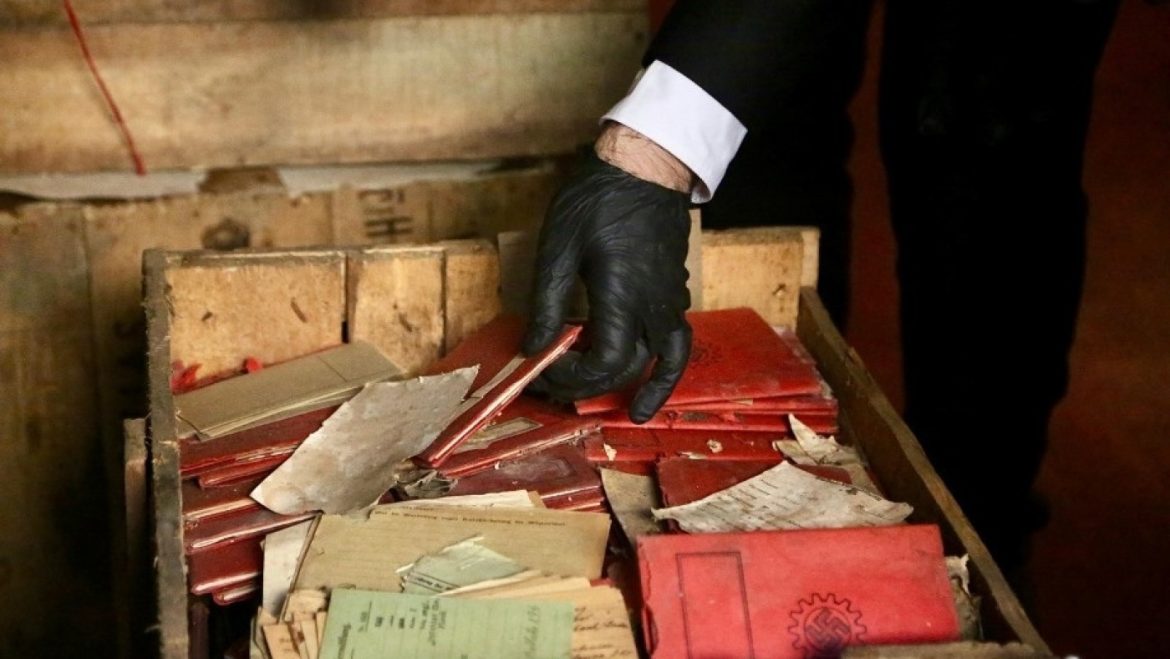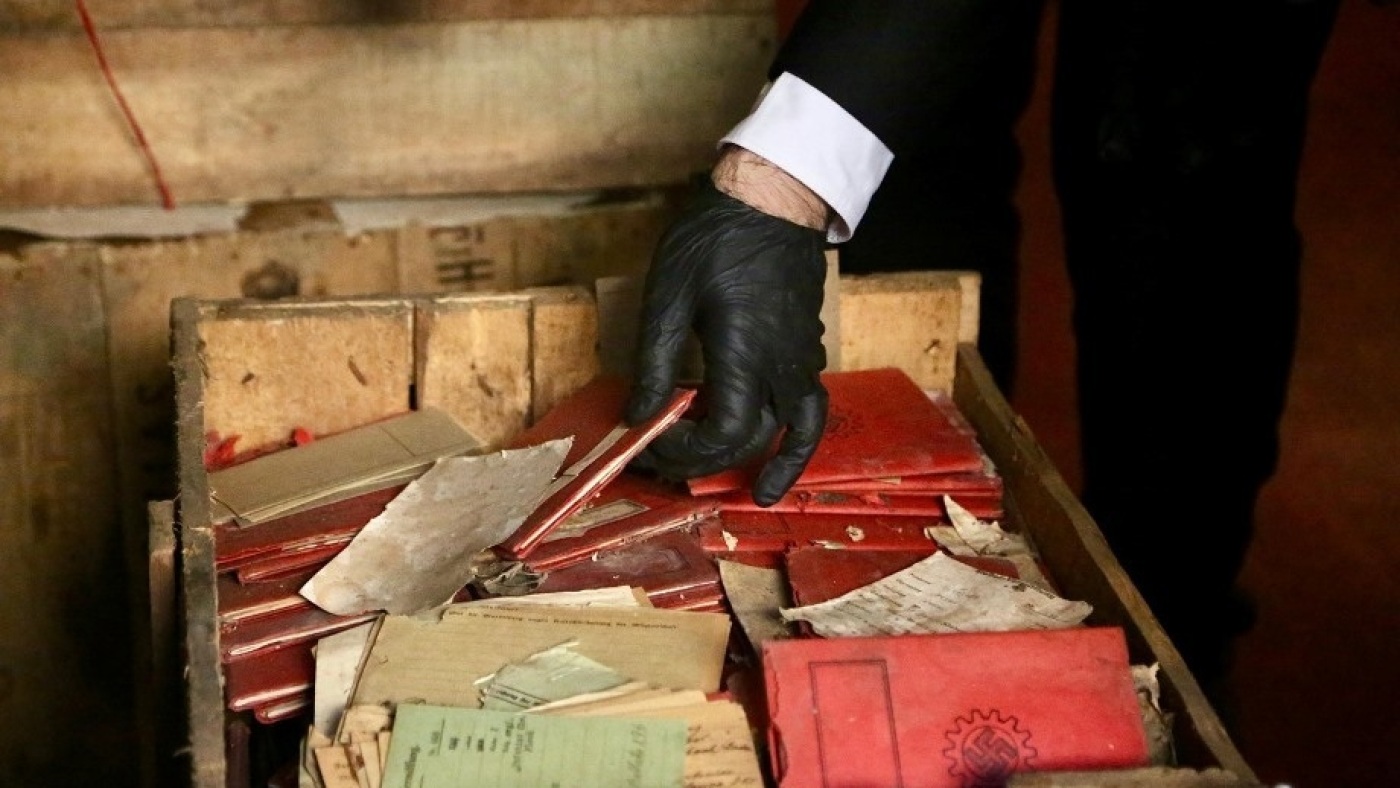The Discovery of Nazi Documents in Argentina’s Supreme Court
The recent discovery of over 80 boxes of forgotten Nazi documents in the basement of Argentina’s Supreme Court has sent shockwaves through the historical and legal communities. These documents, dating back to 1941, were intended to consolidate and propagate Adolf Hitler’s ideology in Argentina. This unexpected find has raised numerous questions about Argentina’s historical ties to the Nazi regime and the significance of these documents in understanding the past.
Historical Context and Discovery
The boxes, which had been stored in the basement of the Supreme Court, were discovered during a routine cleanup for a museum project. The materials inside included a trove of Nazi propaganda, postcards, photographs, and thousands of documents crafted to spread Hitler’s ideology. The discovery was made as judicial staff were relocating files, highlighting the serendipitous nature of the find.
The documents were shipped to Argentina in 1941 from the German embassy in Tokyo aboard the Japanese steamship Nan-a-Maru. This shipment was part of a broader effort by Nazi Germany to disseminate its propaganda and ideology in South America, a region known for its significant German immigrant population.
The Content of the Documents
The contents of the boxes are diverse and include:
– Propaganda Materials: Posters, literature, and photographs designed to promote Nazi ideology.
– Personal Correspondence: Letters and diaries from Nazi party members.
– Membership Cards: From various Nazi organizations, providing insights into the structure and activities of these groups in Argentina.
– Photographs: Images that offer a visual record of Nazi activities and events in Argentina.
– Postcards: Often used as a means of communication and propaganda.
These materials are now being examined by Holocaust researchers and historians, who hope to shed light on the extent of Nazi influence in Argentina and the role of the country in harboring Nazi war criminals.
Implications for Argentina
The discovery has significant implications for Argentina’s historical narrative. The country has long been known as a haven for Nazis fleeing Europe after World War II. This find adds to the growing body of evidence that suggests Argentina played a more active role in supporting the Nazi regime than previously acknowledged.
In 2000, President Fernando de la Rúa officially apologized for Argentina’s role in harboring Nazi war criminals. The discovery of these documents raises questions about the extent of this role and the complicity of Argentine authorities in supporting Nazi activities. The documents may also provide new insights into the activities of key Nazi figures who fled to Argentina, such as Adolf Eichmann and Josef Mengele.
The Role of the Supreme Court
The Supreme Court of Argentina has taken a proactive approach to the discovery. President Horacio Rosatti has ordered a thorough review of the documents, working with local Jewish organizations to ensure a comprehensive and respectful examination. This collaboration is crucial in understanding the historical significance of the documents and their potential impact on current relations between Argentina and the global Jewish community.
The Future of the Documents
The documents are now being carefully examined by experts to determine their historical significance and potential use in legal and historical research. The Supreme Court’s decision to involve local Jewish organizations ensures that the review process is transparent and respectful of the sensitivities surrounding the Nazi regime’s atrocities.
The documents may provide valuable insights into the activities of Nazi organizations in Argentina, the extent of Nazi influence in South America, and the role of Argentina in supporting Nazi war criminals. They may also offer new perspectives on the Holocaust and the global impact of Nazi ideology.
Conclusion: A Call for Further Investigation
The discovery of these Nazi documents in Argentina’s Supreme Court basement is a stark reminder of the enduring legacy of the Nazi regime and the complexities of historical memory. It underscores the importance of continued investigation and transparency in understanding the past, especially in regions with significant ties to the Nazi regime.
As researchers delve deeper into these documents, they may uncover new information that challenges existing narratives and sheds light on the darker chapters of Argentina’s history. This discovery serves as a call to action for historians, legal experts, and the global community to engage in a thorough and respectful examination of these materials, ensuring that the lessons of the past are not forgotten.


